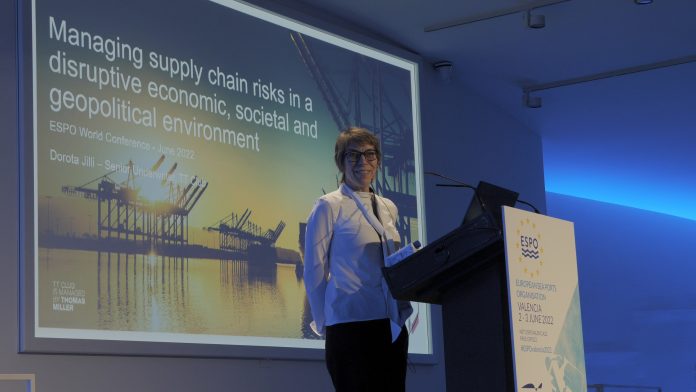The challenges in the landscape of international trade and supply chain today are evident, with higher energy and food prices, shortages and delays in the delivery of manufactured goods, and dynamic changes in markets and supply regions dominating the market.
Both the pandemic lockdowns and the war in Ukraine seem to be catalysts for igniting underlying economic and environmental trends that will continue to fuel long-term changes in the pattern of global supply and demand.
As a specialist in the provision of insurance and risk management services in the international transport and logistics industry, TT Club considers that it is very important to understand risks in order to limit them.
“We are suffering from a disappearing ability to absorb short-term shocks to the supply chain because of fundamental societal and geopolitical changes to the global equilibrium,” commented Dorota Jilli, senior underwriter at TT.
“Yes, Covid and the war are disruptive and are driving up prices but the longer-term trends of production cost increases in Asia and stricter demands of Environmental, Social and Governance (ESG) mean that cheaper goods and transport services are features of a past global economy,” she said.
Jilli explained some of the risks that operators face in an ever-changing environment. Abandoned cargo is more prevalent with delays due to port congestion and lockdown closures meaning the incidence of consignee bankruptcy or goods being unwanted due to loss of markets is higher. This is of particular concern when dangerous goods are left in storage for excessive periods.
“Trends in cargo theft are also in flux with more essential goods such as food and beverages being targeted and luxury goods and electronics not so much as in the past,” commented Jilli.
“Cargo at rest, either at ports or inland staging areas, some of which have been hurriedly pressed into service as overflow facilities, is increasingly subject to theft. With shippers looking for ‘workarounds’ to reduce costs or avoid congestion, thieves have been quick to adapt their methodologies and the use of online means of deception and insider recruitment are now both more common,” she continued.
According to TT, the right use of data for the analysis of these trends is critical.
In fact, TT Club uses its own claims experience along with theft reporting agency information to maintain and expand the industry’s all-important awareness of evolving risks.
The above is considered one of the primary mitigating factors in managing the evolving, modern, long-term risk profile, along with developing technologies and offering predictable and resilient supply.
“It is important to ensure that adequate risk assessments are undertaken across the full breadth of your operation in order to understand thoroughly the various risks and, where appropriate develop mitigating actions and controls, together with effective continuity plans to protect your business,” Jilli concluded.







